Praise for
Opening the Field of Practical Theology
This new textbook offers a welcome and fresh approach to teaching and learning practical theology. Its attentiveness to the varieties of practical theological method and its use of a common template across the chapters will help students read comparatively and, thus, better comprehend the complexity of the field.
Kathleen Greider, Edna and Lowell Craig Professor of Practical
Theology, Spiritual Care, and Counseling, Claremont School of Theology
Opening the Field of Practical Theology maps the complex terrain of this field as astutely as anything in print. Its respectful attention to diversity of ethnic and religious contexts and appropriate methods for them is to be applauded. Happily the shared template across the contributions makes it feel like an integrated volume and not simply a collection of essays. Best of all, the authors come across as living theologians whose own stories and contexts matter. This volume not only talks about practical theology, but smartly models it. Bravo!
Edward Foley, Capuchin, Duns Scotus Professor of Spirituality,
Catholic Theological Union
This outstanding book demonstrates the breadth in the emerging field of practical theology in the United States. Different Christian communities, related to different ethnic groups and different cultural contexts, demand for differentiated elaborations of a practical theology that should be both theologically normative and culturally informed. The authors paint a vivid picture of practical theology today.
Wilhelm Grb, Humboldt-University Berlin
Cahalan and Mikoski have provided a straightforward approach to a complex and seemingly amorphous subject. The common structure of each chapter provides a clear and eminently useful way to engage and understand the nuances within and between various understandings of and approaches to practical theology. Using rubrics that help make explicit what is often only implicit, the authors invite the reader into the dynamic interchange between lived experience and divine activities through a variety of contextual, theoretical, historical and theological lenses.
Barbara J. McClure, Brite Divinity School
A wonderful birds eye view of the scholarly expanse constituting practical theology today. Kudos to the insightful editors who designed a set of common categories and the stellar scholars who amplified them in overview chapters designed to help readers understand disciplinary developments. Readers will gain an invaluable sense of what counts for practical theology across a range of different approaches.
Bonnie Miller-Mclemore, E. Rhodes and Leona B. Carpenter Professor of Religion, Psychology, and Culture, Vanderbilt University
Opening the Field of Practical Theology
An Introduction
Edited by
Kathleen A. Cahalan and Gordon S. Mikoski
ROWMAN & LITTLEFIELD
Lanham Boulder New York Toronto Plymouth, UK
Published by Rowman & Littlefield
4501 Forbes Boulevard, Suite 200, Lanham, Maryland 20706
www.rowman.com
10 Thornbury Road, Plymouth PL6 7PP, United Kingdom
Copyright 2014 by Rowman & Littlefield
All rights reserved. No part of this book may be reproduced in any form or by any electronic or mechanical means, including information storage and retrieval systems, without written permission from the publisher, except by a reviewer who may quote passages in a review.
British Library Cataloguing in Publication Information Available
Library of Congress Cataloging-in-Publication Data
Opening the field of practical theology : an introduction / edited by Kathleen A. Cahalan and Gordon S. Mikoski.
pages cm
Includes bibliographical references and index.
ISBN 978-0-7425-6125-0 (cloth : alk. paper) ISBN 978-0-7425-6126-7 (pbk. : alk. paper) ISBN 978-1-4422-3251-8 (electronic)
1. Theology, Practical. I. Cahalan, Kathleen A., editor of compilation. II. Mikoski, Gordon S., editor of compilation.
BV2.O64 2014
253dc23
2013048467
 TM The paper used in this publication meets the minimum requirements of American National Standard for Information Sciences Permanence of Paper for Printed Library Materials, ANSI/NISO Z39.48-1992.
TM The paper used in this publication meets the minimum requirements of American National Standard for Information Sciences Permanence of Paper for Printed Library Materials, ANSI/NISO Z39.48-1992.
Printed in the United States of America
To our teachers, mentors, colleagues, students, and friends
all those who formed us as practical theologians,
we dedicate this work to you
Acknowledgments
We would like to thank Dorothy Bass and Craig Dykstra, who invited us to participate in a seminar on practical theology and ministry that culminated in the book For Life Abundant: Practical Theology, Theological Education, and Christian Ministry (2008). We met during that seminar and presented a map of practical theology, which eventuated in a book outline. We would have not completed it, however, without the generous contributions of our authors. We also want to thank our editor at Rowman & Littlefield, Sarah Stanton, for her guidance in the bookmaking process, and Katherine Obermueller Unruh, a graduate student at Princeton Seminary who helped prepare the manuscript for publication. We also give thanks for Jennifer DiRicco, Gordons administrative assistant at Princeton Seminary, who greatly aided the production of the book at several key points. Finally a special thanks to our colleagues and students at Princeton Seminary and Saint Johns Seminary and School of Theology and our colleagues in the Association of Practical Theology, all of whom have shaped us as practical theologians. We hope this book will serve our common efforts.
Chapter 1
Introduction
What do practical theologians say about the nature and task of our field? Even though we differ among ourselves about a range of issues from method to theological norms to the use of the human sciences or cognate fields of study that we engage, it remains that as practical theologians we share a number of core commitments. The unity of the field lies in the constellation of interests and concerns that we foreground in our work and how those interests and concerns relate to one another. While other fields of theological study also find resonance with or claim commitment to a number of these interests, the difference lies in the relative weight, priority, complexity, level of engagement, and self-identity with which practical theologians work.
The focal concerns characteristic of the field of practical theology tend to overlap, imply each other, and interlock. We have identified at least eleven major concerns that integrate and guide the work of practical theologians across a variety of contexts, intellectual commitments, and specializations. As a dynamic and differentiated field, practical theology involves the following elements and values:
Attentive to theory-practice complexity
Practice and performance oriented
Oriented to multidimensional dynamics of social context and embodiment
Holistic
Interdisciplinary
Open-ended, flexible, and porous
Theologically normed
Hermeneutical
Interventionist and critically constructive
Teleological and eschatological
Self-reflective and self-identified
Practical theologians do not claim to exercise sole or proprietary control over these concerns or particular constellations of them. While recognizing that others also care about these issues, we seek to attend to all or most of these concerns as we go about our work. The ways in which practical theologians put these concerns together give rise to a number of trajectories or approaches to the field and allow us to establish and maintain disciplinary integrity. The field simultaneously builds bridges of understanding and collaboration with scholars in theological education and the wider academy, as well as with practicing religious leaders and others in the churches. In order to better understand practical theology, we offer a brief description of the key features here, which are treated more fully in the chapters that follow.
Next page

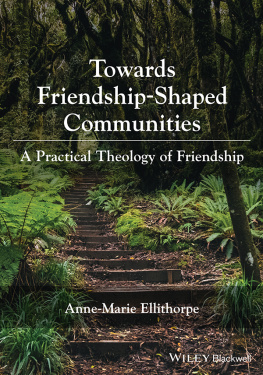
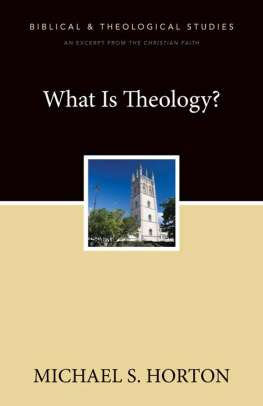
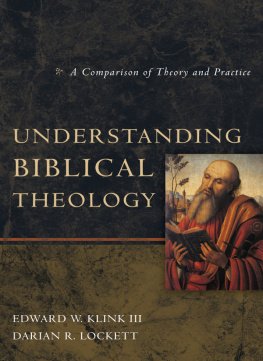
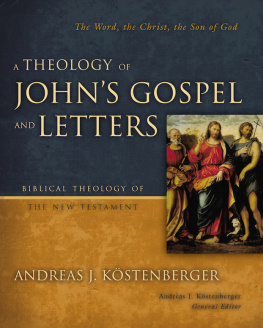
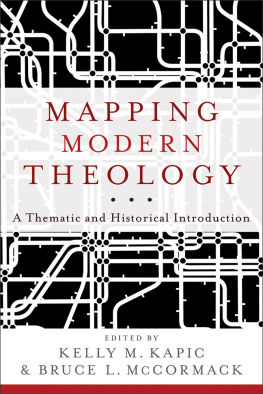
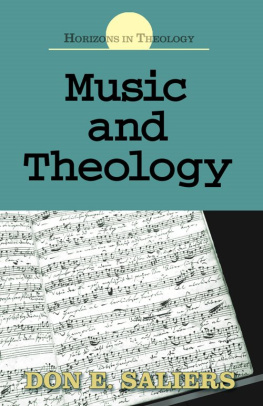

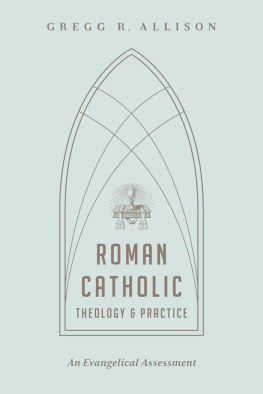

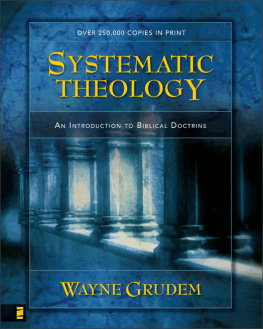
 TM The paper used in this publication meets the minimum requirements of American National Standard for Information Sciences Permanence of Paper for Printed Library Materials, ANSI/NISO Z39.48-1992.
TM The paper used in this publication meets the minimum requirements of American National Standard for Information Sciences Permanence of Paper for Printed Library Materials, ANSI/NISO Z39.48-1992.